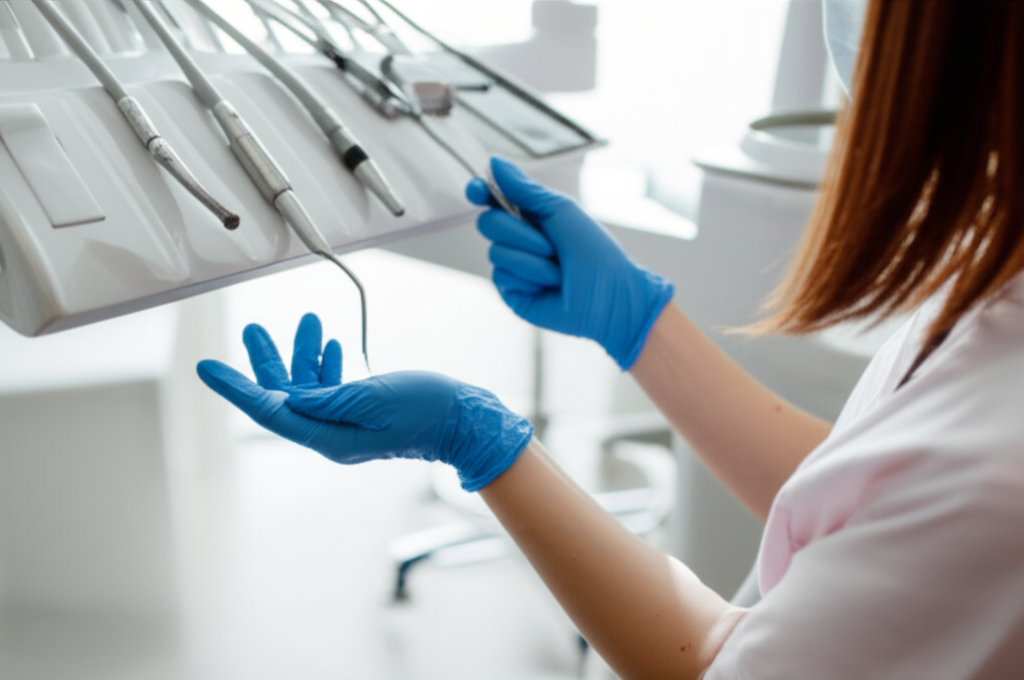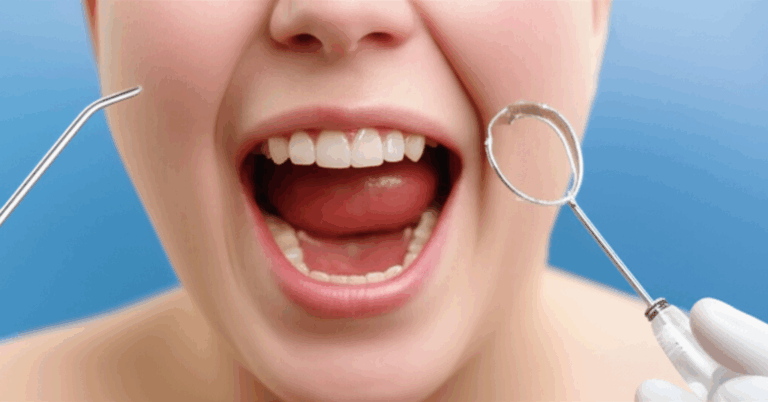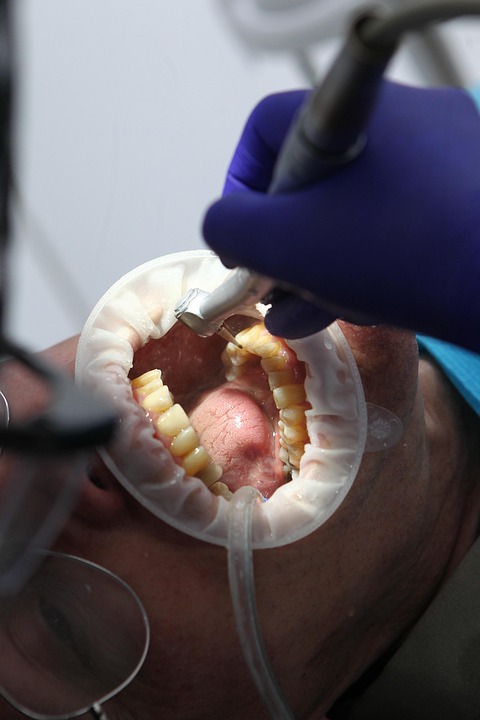
From Hygienist to Dentist: My Comprehensive Guide to Making the Leap
Table of Contents
- A. Fulfilling Undergraduate Prerequisites
- B. Earning a Bachelor’s Degree
- C. Tackling the Dental Admission Test (DAT)
- A. AADSAS and Your Application
- B. Letters of Recommendation
- C. Clinical Experience, Shadowing, and Volunteering
- D. Nailing the Interview
Introduction: Dreaming Bigger in Dentistry
When I first started as a dental hygienist, I’ll say it honest, I loved it. Helping people, earning their trust, and learning something new all the time—what else could I want? But after a while, a thought kept popping up: Could I really do more with my dental job? Could a dental hygienist become a dentist?
I’ve asked myself this over and over. Maybe you’re asking it too. If you sit in the office and wonder what it’s like to do more—finding out what’s wrong, fixing it, being the boss—you’re in the right place. I’ve done this before and I want to walk you through it one step at a time.
Can a Dental Hygienist Become a Dentist? My Short Answer
I wish someone just told me this straight: Yes—a dental hygienist can become a dentist. The road is not short, and it’s not simple, but it’s real.
You’ll do what all dental school hopefuls have to do—finish college classes, beat the DAT, put together a good application, and make it through dental school—but you actually have a head start. You’ve already got clinic skills, a solid work mindset, and you know how to talk to patients. That experience of what really happens every day in the dental chair? Dental schools pay close attention to that. I leaned on my hygiene background all the way—and it helped me get noticed.
Setting Out: The Foundational Steps
Let’s go over what you’ll have to do before you can call yourself “Doctor.”
A. Fulfilling Undergraduate Prerequisites
Before I could start dental school, I had to make sure I took all the classes they wanted. Most dental schools want you to take:
- Biology (with lab)
- General Chemistry (with lab)
- Organic Chemistry (with lab)
- Physics (with lab)
- Math (sometimes Calculus or Stats)
- English Composition
If you took some of these in your dental hygiene degree, check carefully if they count—schools are picky. When my associate degree didn’t cover everything, I signed up for more science classes at a nearby college. Your grades count a lot here. Most people who get in have a GPA above 3.5, especially for science.
B. Earning a Bachelor’s Degree
Here’s a tough part for lots of hygienists: Dental schools almost always want a bachelor’s degree. If you only have an associate’s, like I did, you may need to finish a four-year degree. Some keep working and study part-time; others go full-time or sign up for a post-bacc (post-bachelor’s) program that’s focused on science.
This takes real work. I had to juggle school, work, and regular life all at once. Was it tough? For sure. But I got better at handling my time—being a working adult really helped.
C. Tackling the Dental Admission Test (DAT)
The DAT is a big test that covers math, science, and thinking skills. It has:
- Survey of Natural Sciences (biology, general/organic chemistry)
- Perceptual Ability
- Reading Comprehension
- Quantitative Reasoning
Don’t think you can wing it—I studied for months using big prep books, flashcards, and stuff online. Being a hygienist helped me with the biology part, but the organic chemistry part was hard since I hadn’t done it in a while.
A good score is about 20–22 on the Academic Average and Total Science sections. This is about what the average person who gets in scores.
The Application Gauntlet: Making Your Experience Count
So you got the classes and the DAT out of the way—what’s next? Now it’s time to make an application that gets dental schools interested.
A. AADSAS and Your Application
Most dental schools use the main online application called AADSAS. You’ll fill out a lot of forms, write essays, list your classes, and explain what you’ve done.
My best advice? Don’t hide your hygiene experience. In my personal essay, I described things that really happened in the office—helping nervous patients, being part of tricky cases, and understanding what good dentistry means. I wanted the people reading my application to see that I wasn’t just interested—I was already working in dental care.
B. Letters of Recommendation
You’ll need some good letters from people who know you. I asked dentists I worked with and science teachers who taught me. Don’t just ask anyone—pick people who can honestly say how you are with patients, what you know, and how hard you work. Your clinic skills are important—let them talk about that.
C. Clinical Experience, Shadowing, and Volunteering
You might think your time as a hygienist is enough—and it does help a lot. But dental schools want you to “shadow” (follow and watch) dentists too, and in different types of places—like ortho, root canal specialists, and sometimes public health clinics.
For volunteering, I took part in free dental camps and health fairs. Some of these counted as “service” hours for my application. The more different things you do, the better.
D. Nailing the Interview
Dental school interviews can be scary. I used my hygiene years in my answers. I shared stories about helping real patients, and I told them why I wanted to do more for people. Just be real, honest, and back up what you say with examples.
Life in Dental School: Lessons from the Inside
Dental school feels like running a marathon. Here’s stuff I wish someone told me at the start.
A. Program Length and Structure
Dental school is a four-year program. There’s:
- Class learning (in classrooms)
- Lab work (on fake teeth and models)
- Clinic work (seeing patients with a teacher watching)
The first two years are mostly science—learning about the body, how diseases work, and meds. The last two years you spend more time seeing real patients.
You’ll get to know how to work with dental labs—doing things like working with a crown and bridge lab, learning about new materials, and sometimes how computer designs for crowns work. It was a lot to learn, but felt cool because I already knew some stuff from hygiene.
B. Turning Hygiene Skills into Strengths
Being a hygienist first made some things easier:
- I could talk with patients with no problem.
- I already knew about taking x-rays, cleaning teeth, writing charts, and sometimes numbing patients (if you live in a state where you can).
- I knew how to manage my time—seeing patients, doing homework, and handling clinic jobs.
A few of my classmates also used to be hygienists or assistants, and we helped each other out. Some schools let hygienists skip a class or two, but it isn’t normal. Plan to do the full four years.
C. Paying for It All
Let’s be clear: Dental school costs a lot. Tuition can be anywhere from $40,000 to $100,000+ per year, depending where you go and if you live in that state. Add living costs, books, tools—all together, you’ll need loans and smart money choices. Most students finish with loans near $300,000.
There are a few scholarships for older students or second-career folks, but those are limited and won’t pay for everything. I kept cleaning teeth part-time during the first years, but near the end, there’s not enough time. Focus on school.
Big Challenges: What Nobody Tells You
Let’s not sugarcoat it. Going from hygienist to dentist isn’t all fun.
- Time Commitment: It can take 8–10 years from your first college class to being done, if you’re starting from nothing. Already have your bachelor’s and classes? It’s faster.
- Lots of Hard School Work: Dental school is tough. It moves fast. I had nights where I wanted to quit—but I just kept pushing.
- Money Stress: Tuition goes up all the time, and you’ll give up some income by working less as a hygienist.
- Missing Out: You’ll miss family time, hanging out, or even taking a break. You’ll have to decide if that’s okay for you.
And, if you’re older (in your 30s, 40s, or more), you may feel like you don’t fit in at first. I did. But having more life experience helped me stay calm when things got tough.
Upsides and Rewards: Why It’s Worth It
Now, for some good news.
- You Can Do More: As a dentist, you find problems, make a full plan, and do fillings, surgery, and more. I loved really taking care of a patient all the way through.
- You’re in Charge: If you want to buy your own office, work with a china dental lab for new crown stuff, or just run a team, being a dentist lets you do it.
- You Make More Money: This was a big reason for me—a dentist often makes over twice what a hygienist does.
- Keep Growing: You can specialize (like braces, gum disease, teeth surgery), do research, or even teach later.
- Bigger Impact: I get to really guide a patient’s care—from cleaning to fixing smiles. I use my hygiene skills every day, teaching people how to keep their teeth healthy.
Beyond Graduation: Licensure and Career Choices
You’re not done when school ends—few last things.
- License: You must pass the INBDE (big written test) and a hands-on test for your state. Hard, but you can make it if you study.
- Job Choices: Just want to be a regular dentist? Great. Want to specialize? That’s more years in school.
- Owning a Practice: More risk, but can mean more reward and freedom.
Through all this, I got to work with labs, learn about dental ceramics labs, and what goes into making dentures and how computer design and lab work helps dentists take care of patients.
Closing Thoughts: Is This the Move for You?
Is all this worth it? Only you can answer that. Be honest—think about why you want this, what you have, and if you’re ready to work through the hard stuff.
Some questions I asked myself:
- Do I really love learning, even when it’s hard?
- Am I ready to be a leader and be in charge when things go wrong?
- Am I okay with less money (for a while) and big school costs?
- Can I make a bigger difference in the dental world, using my hygiene skills?
If you said “yes” more than “no,” maybe it’s time to try.
Next steps: Talk to pre-dental advisors, speak with dentists, and shadow them in different offices. The more you find out, the clearer it all becomes.
Frequently Asked Questions
Q: Will my hygiene experience help me get into dental school?
A: Yes. Admissions folks care about people with real, hands-on experience and who know how to talk to patients.
Q: Can I work as a hygienist during dental school?
A: At first, part-time work may happen, but in the last few years of school it gets too busy.
Q: Am I too old to go back to school?
A: Nope. I was older than most, and some of my classmates were even older. Being mature helps.
Q: How long will it take me to become a dentist, start to finish?
A: If you have your bachelor’s and needed classes, plan for four years of dental school. Need more classes or the degree? Add 1–4 more years.
Q: Is the financial investment worth it?
A: Only you can decide, but most of us see it as a way to make more money and feel good about our work. The numbers are clear: dentists make more than hygienists.
Nothing beats the mix of real experience, hard work, and wanting to grow. If you go for dentistry, you’re not just moving up the job ladder—you’re joining a bigger stage, with more responsibility and, for me, much bigger rewards.
Whatever you do, I hope my story helps you see what’s possible. Good luck!








